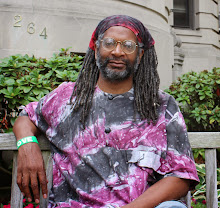Monadnock, Oxbow and a Very Sad River in Chicago"
"Put "environmentalism" into your search engine and see what comes up.
(long pause.... waiting for you to do as suggested.... ok...do it later...)
As I pondered the relationship of environmentalism and revolutionary energetics in the purview of the information supersidewalk, I was confused, surprised and disappointed considering my assumption of the positive nature of a movement or set of ideas named "environmentalism". Envisioning images of well-written picket sign slogans outside of corporate headquarters, brave and valiant, nay intrepid eco-warriors in Navy Seal-esque inflatables buzzing behemoth high-tech whaling ships on the cold, open seas and quietly powerful women setting up shop in beloved trees, I was summarily smited by such resources as:
"Environmentalism.com home
Links and articles analyzing the destructive religion of environmentalism.""The Death of Environmentalism
File Format: PDF/Adobe Acrobat - View as HTML
In this remarkable report on how environmentalism became a special ...
modern environmentalism is no longer capable of dealing with the world's most serious ...""Environmentalism Refuted - George Reisman - Mises Institute
Environmentalism is the product of the collapse of socialism in a world that is ignorant of the contributions of Ludwig von Mises-a world that does
not know ...""The Ayn Rand Center for Individual Rights: Environmentalism and ...
Argues that environmentalism uses false scientific claims to frighten the unwary , has a doomsday mentality reminiscent of Dark Age fanatics, ..."
(electronic search, Google, retrieved 10/25/08 from http://www.google.com/search?q=environmentalism&ie=utf-8&oe=utf-8&aq=t&rls=org.mozilla:en-US:official&client=firefox-a)
The above links were not the only ones that came screaming bloody-humanity-murder off of my computer screen, but they were the ones that demanded the most of my attention. As a student of progressive and revolutionary social movements and politics (and physics), I know that there is always a reactionary backlash to any substantial progressive or revolutionary action or set of ideas. The presence of these websites on the first of many pages about environmentalism was a clear statement of the organizational power of these reactionary forces and, unluckily, a tip-off to a possible deficit of organization of the environmental movement, at least on the pages of Google.
I wondered why one of the first links, "environmentalism.com" was an anti-environmentalism page. Had no one in the environmentalist movement thought about, cared enough or had enough money or time to safeguard one of the main portals to information about one of the most dynamic and enlightening ideological thrusts in these modern times? Was the environmentalist movement merely a hodge-podge of under-funded and over-emotional neo-hippies sitting at their Macintosh laptops in their hardwood-floored group-domiciles in Cambridge, Austin, Oakland and Portland? I wasn't sure, but then I couldn't remember the last time I met someone who proudly and expansively bore the moniker of "environmentalist" on their sleeve or in their words (interestingly enough, my experience with "republicans" and "democrats" is much the same).
Perusing environmentalism.com, embarrassed that the ‘bad guys' had outbid ‘us' on ‘our' domain name, I found their reference to the Unabomber as an "explicit environmentalist" akin to the same extreme kookism that marks the globalization movement's characterization of anything or anyone remotely smelling, walking or talking like socialism (peoplism as I like to call it conversationally), a system which focuses primary attention and resources to the needs of humanity. Silly, right? Deep within that kookism reference, the parallel between anti-peoplism and anti-environmentalism was clear.
The nature of that first Google page could have also lent itself to the pernicious move of the capitalist corporatocracy toward the destruction of net neutrality, a real and current effort that threatens the democratic nature of the internet and would render non-tribute-paying (read progressive, socially-responsible and/or peoplist) sites imperceptible or virtually inoperational in the web realm.
Nefarious machinations of the capitalist corporatocracy (thank you, John Perkins, for a perfectly concrete and functional buzzconcept) notwithstanding for the purposes of this communiqué, there is an element of our human experience that is deeply missing from the somewhere-over-the-radar work of environmentalism and the steadfast legions of reducers, reusers and recyclers. The contemporary environmental/green movement is missing a major power dynamic in its attempt to bring balance back to our natural world. We find ourselves doing material things in relationship to our desire to "save the earth". We find ourselves doing political things, all be they rocks against a brick wall (not pessimism, but a reminder that if the rocks are numerous and big enough, brick walls can be reduced to dust) in the interest of creating a world free of rampant pollution and animal (including human) extinction. We find ourselves doing physical things, biking instead of driving fossil fuel vehicles, taking stairs instead of elevators, building green buildings instead of status quo office complexes to help cool a warming globe.
And we still find ourselves in the lurch of wholism and functional completion in our efforts to live in harmony, in balance with the very physical and naturo-spiritual reality that gave us birth."



